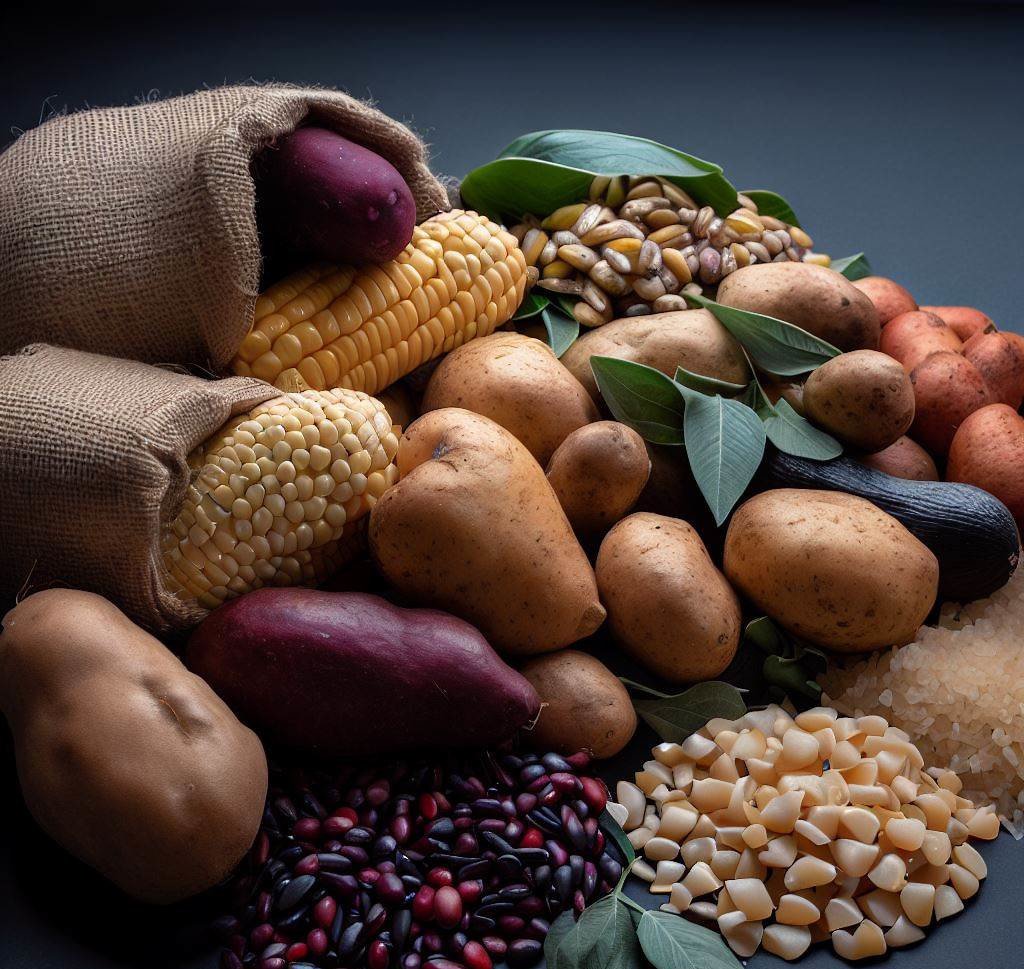In a hypothetical scenario where society collapses, ensuring a stable and sustainable food source becomes crucial for survival. Cultivating essential crops provides a means of self-sufficiency and resilience. While specific crops may vary based on factors like climate and personal preferences, the following ten crops possess valuable characteristics that make them ideal choices in a collapsed society. Let’s explore the essential crops that can sustain us in times of crisis.
1. Potatoes:
Potatoes are a versatile and resilient crop, known for their high nutritional value and long storage life. Rich in carbohydrates, vitamins, and minerals, potatoes offer a reliable source of sustenance. They can be grown in diverse climates and require minimal space, making them an ideal choice for self-sufficiency.
2. Beans:
Beans, including black beans, kidney beans, and lentils, are protein powerhouses packed with essential nutrients and dietary fiber. Easy to grow and dry for long-term storage, beans provide a vital source of sustenance and contribute to soil fertility through nitrogen fixation.
3. Corn:
Corn is a versatile and high-yielding crop that offers carbohydrates, essential nutrients, and culinary diversity. It can be processed into various forms like flour, cornmeal, or used fresh. Despite its resource-intensive nature, corn’s productivity and versatility make it a valuable crop for sustained food production.
4. Amaranth:
Amaranth is a resilient grain crop that thrives in diverse climates. Its seeds are highly nutritious, rich in protein, essential amino acids, and minerals. Amaranth’s adaptability, high yield per plant, and versatility as a grain or leafy vegetable make it an invaluable choice in times of crisis.
5. Wheat:
Wheat has been a staple crop for centuries, providing carbohydrates, proteins, fiber, vitamins, and minerals. Milled into flour, wheat serves as a foundation for a wide range of foods, including bread, pasta, and pastries. With proper storage, wheat ensures a long-lasting food supply.
6. Rice:
Rice is a calorie-dense crop that offers carbohydrates and some essential nutrients. It is a versatile staple that can be prepared in various ways and pairs well with different ingredients. Rice’s long shelf life and cultural importance make it a crucial crop for sustenance during challenging times.
7. Sweet Potatoes:
Sweet potatoes provide carbohydrates, vitamins, and minerals, much like regular potatoes. They are adaptable to various soil conditions and require minimal maintenance. With their sweet flavor and nutritional profile, sweet potatoes offer a valuable addition to a diversified crop selection.
8. Leafy Greens:
Leafy greens, such as kale, spinach, and Swiss chard, are nutrient-rich crops that provide essential vitamins, minerals, and dietary fiber. Fast-growing and capable of continuous harvesting, leafy greens ensure a fresh and vital component in the diet.
9. Squash:
Squash, particularly winter varieties like butternut or acorn squash, offers carbohydrates, nutrients, and storage longevity. Squash plants are relatively low-maintenance and produce a significant yield. Their versatility in culinary applications adds to their value.
10. Berries:
Berries, including raspberries, blackberries, and blueberries, are rich in antioxidants, vitamins, and fiber. Depending on your climate, cultivating berry bushes can provide a fresh food source with added health benefits.
In a collapsed society, cultivating these ten essential crops can help ensure sustenance and self-sufficiency. Potatoes, beans, corn, amaranth, wheat, rice, sweet potatoes, leafy greens, squash, and berries offer a diverse range of nutrients, resilience, and versatility. It’s crucial to adapt your crop selection to your specific climate and resources. With careful planning, these crops can provide a reliable food source, ensuring a balanced diet and increasing your chances of survival in times of crisis. Remember to consider factors like storage, cultivation requirements, and personal preferences when selecting crops. By cultivating a variety of essential crops, you can foster resilience, self-reliance, and a sense of security in an uncertain world.

Comments